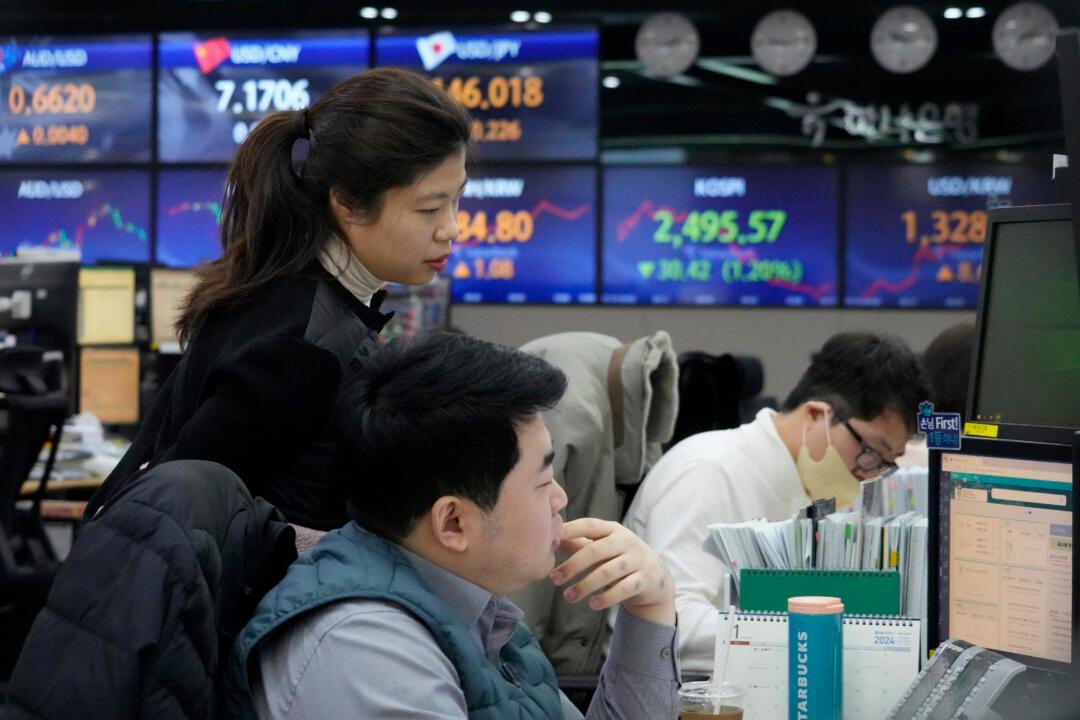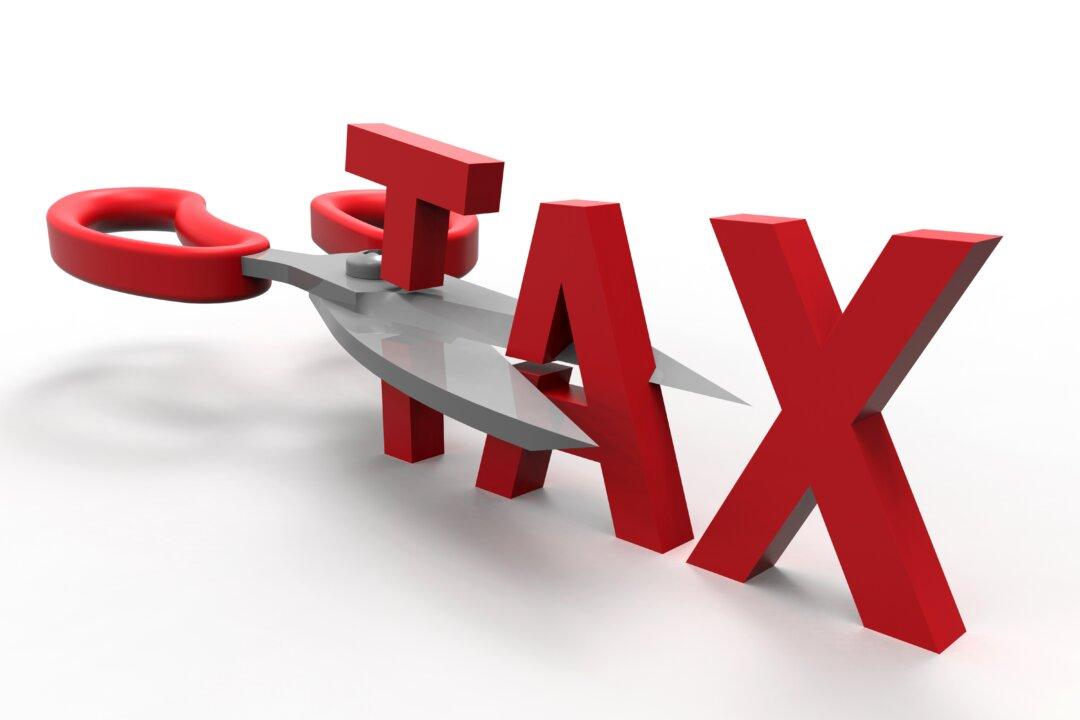BANGKOK—Shares fell Tuesday in Europe and Asia, with Hong Kong’s benchmark down more than 2 percent as jitters over China’s outlook cast a shadow over regional markets.
U.S. markets were closed Monday, leaving investors without cues from overnight trading. Early Tuesday, the future for the S&P 500 was 0.5 percent lower, and that for the Dow Jones Industrial Average was down 0.5 percent.





